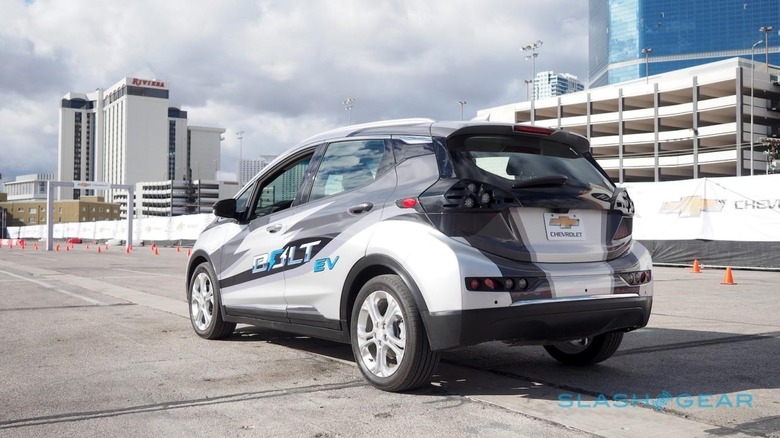Lyft is working on self-driving Chevy Bolt EV cabs
Lyft will trial autonomous taxi service with a fleet of self-driving Chevrolet Bolt EVs within the next twelve months, it's reported, as GM accelerates its car tech research. The automaker and the ride-sharing firm announced back in January that they had plans to collaborate on self-driving cars, with the eventual goal being an on-demand, autonomous vehicle network that could be summoned from a smartphone.
Now, an unnamed Lyft executive tells the WSJ, those plans are shaping up for a public trial. Exactly which city Lyft has picked to put the fleet through its paces is unclear, though it'll apparently be everyday users of the service that are the test subjects.
The app will allow customers to opt in or out of getting an autonomous car as part of the pilot through the Lyft app, it's said.
The car Lyft and GM will be using is arguably no less important. It's unclear how many of the Chevrolet Bolts will be used, but GM is undoubtedly keen to get the electric cars out in front of the public in as significant scale as possible, ahead of Tesla's direct competitor, the Model 3.
To that end, GM will begin providing the Bolt to Lyft drivers without a suitable car, it's said. Currently one of the most common ride-sharing car vehicles is the Toyota Prius, but Chevy is looking to change that by pushing the Bolt instead of its current Lyft rental option, the Equinox SUV.
One of the advantages of the EV's upright hatchback body style is the extra room it allows for in the rear, arguably ideal for a taxi service.
Though the autonomous project is still a work-in-progress, Lyft supposedly has already cooked up an early app to demonstrate what the functionality could look like. From their phone, users could opt into getting a self-driving vehicle, then trigger the start of the journey and tell the car when to stop.

Integration with GM's OnStar service – which provides a direct link with a human support agent within the car – could be used for troubleshooting or if the vehicle didn't behave as expected.
However, there'll be a more traditional fallback available too. Because regulations don't yet allow for self-driving cars to be sent out onto the roads without a human at the ready to take over in the case of an emergency, there'll still be someone behind the wheel keeping an eye on how well the system is running.
NOW READ: Driving the Chevy Bolt EV
Although neither Lyft nor GM will publicly confirm the rumors, the self-driving tidbits do arrive at a topical point. Google inked a deal with Fiat Chrysler to create a 100-strong fleet of self-driving minivans earlier this week, while Uber is working on its own project to eventually replace flesh & blood drivers with electronic alternatives.
SOURCE WSJ
